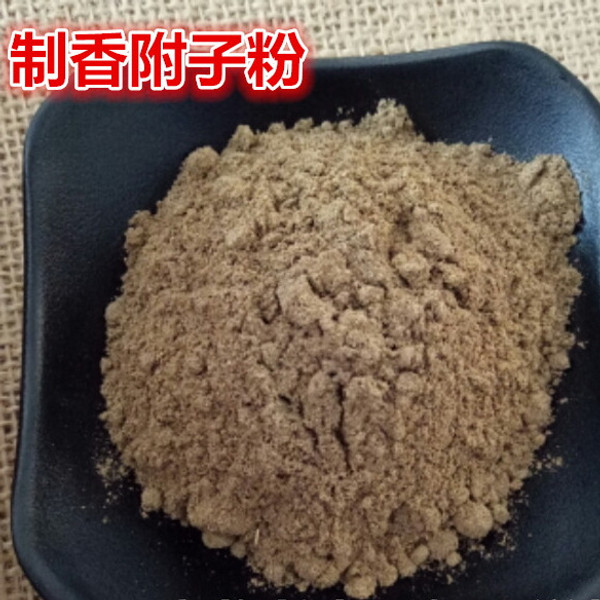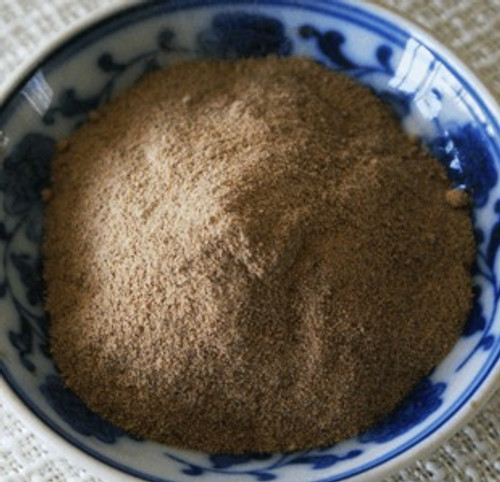Product Overview
Parts used: Dried rhizome
TCM category: Herbs that regulate Qi
TCM nature: Neutral
TCM taste(s): BitterPungentSweet
Meridian affinity: Spleen Liver San jiao
Scientific name: Cyperus rotundus
Other names: Java grass, Nut grass, Purple nut sedge, Purple nutsedge, Khmer kravanh chruk
Use of coco-grass rhizomes (Xiang Fu) in TCM
Please note that you should never self-prescribe TCM ingredients. A TCM ingredient is almost never eaten on its own but as part of a formula containing several ingredients that act together. Please consult a professional TCM practitionner, they will be best able to guide you.
Preparation: Remove impurities, cut in thick pieces and dry.
Dosage: 4 - 12 grams
Main actions according to TCM*: Unblocks Stagnant Liver Qi and relieves pain. Regulates the Liver and Spleen. Assists the regulation of menses and relieves pain.
Primary conditions or symptoms for which coco-grass rhizomes may be prescribed by TCM doctors*: Chest pain Abdominal pain Abdominal colic Irregular menstruation Amenorrhea Dysmenorrhea Acid reflux Abdominal bloating
Contraindications*: Because of its Drying nature, this herb should not be used when there is Yin or Qi Deficiency, especially when there is Heat associated with the condition.
Common TCM formulas in which coco-grass rhizomes are used*:
For dysmenorrhea caused by Qi and Blood Stagnation combine coco-grass rhizomes with dong quai (Dang Gui), szechuan lovage roots (Chuan Xiong) and turmeric tubers (Yu Jin).
For epigastric pain caused by Coldness combine coco-grass rhizomes with lesser galangal rhizomes (Gao Liang jiang).
For premenstrual pain, pain postpartum combine coco-grass rhizomes with lychee seeds (Li Zhi He).
For painful distension of the breasts due to Liver Qi stagnation combine coco-grass rhizomes with sponge gourds (Si Gua) and bupleurum roots (Chai Hu).
For abdominal pain due to Cold deficiency combine coco-grass rhizomes with silvery wormwood leaves (Ai Ye).
Key TCM concepts behind coco-grass rhizomes (Xiang Fu)'s properties
In Traditional Chinese Medicine (TCM), coco-grass rhizomes are plants that belong to the 'Herbs that regulate Qi' category. Herbs in this category typically treat a TCM condition called 'Qi Stagnation'. Concretely it means that Qi is blocked in the body's Organs and Meridians, most typically the Stomach, Liver, and to a lesser extent, the Lungs. In modern medicine terms, Qi Stagnation often translates into psychological consequences such as depression, irritability or mood swings. It's also frequently associated with conditions such as premenstrual syndrome (PMS), menopausal symptoms, the development of breast swellings as well as various digestive disorders.
Furthermore coco-grass rhizomes are plants that are Neutral in nature. This means that coco-grass rhizomes typically don't affect the balance in your body. Balance between Yin and Yang is a key health concept in TCM. Eating too many "Hot" (Yang) ingredients can lead to an imbalance whereby one has a Yang excess. The inverse is true as well: too many "Cold" (Yin) ingredients can lead to a Yin excess. The Neutral nature of coco-grass rhizomes means that you don't have to worry about that!
Coco-grass rhizomes also taste Bitter, Pungent and Sweet. The so-called "five elements" theory in Chinese Medicine states that the taste of TCM ingredients is a key determinant of their action in the body. Bitter ingredients like coco-grass rhizomes tend to have a cleansing action on the body by clearing heat, drying dampness and promoting elimination via urination or bowel movements. On the other hand Pungent ingredients tend to promote the circulations of Qi and body fluids. That's why for instance someone tends to sweat a lot when they eat spicy/pungent food. Lastly Sweet ingredients tend to slow down acute reactions and detoxify the body. They also have a tonic effect because they replenish Qi and Blood.
The tastes of ingredients in TCM also determine what organs and meridians they target. As such coco-grass rhizomes are thought to target the Spleen, the Liver and the Sanjiao. In TCM the Spleen assists with digestion, blood coagulation and fluid metabolism in the body. The Liver on the other hand is often referred as the body's "general" because it is in charge of regulating the movements of Qi and body fluids. It also takes a leading role in balancing our emotions. The triple burner (Sanjiao) is a special concept in TCM with no corresponding organ in modern medicine. Its function is similar to a water wheel: body fuilds, Qi and food are transported through the San Jiao and that very movement helps our metabolism.
Use of coco-grass rhizomes (Xiang Fu) as food
Coco-grass rhizomes are also eaten as food.






